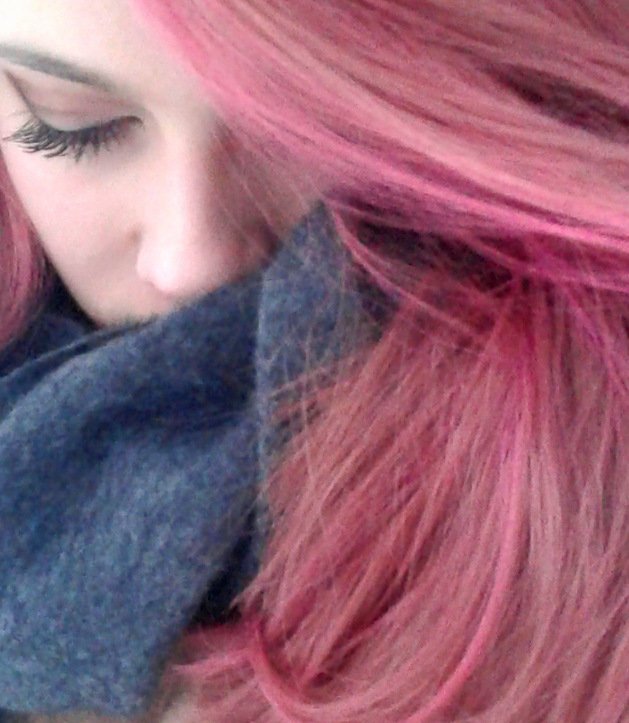Wise Guide to the Funny Bone Column: The Choice Between Vivacious Dye Or My Reputation’s Death
December 26, 2017
As the holiday season crashes into our homes, it tends to bring along family who lugs in suitcases bursting with shallow judgment and loud opinions. Just the other day, my grandfather placed his hand on the top of my head, exclaiming, horrified, “What the hell happened to your hair?” fingering the now pink locks.
Clearly, my unnaturally colored hair was the end of his picture perfect family.
Therefore, I was prepared to be ignored by the general public, but when a group of nuns decided to launch into purposeful conversation with me as I waited alone in a front lobby, I became extremely confused.
What is it about my hair that seems revolting to some and normal to others?
The answer may simply be experience, or lack thereof, but nevertheless it seems that society has placed a sticky sort of stigma around bizarre colored hair that is much too thick to scrub off.
With the reputation of dyed hair being so controversial, it is hard to find an origin, but surely, once upon a time, someone decided to label someone else — with purple or blue or pink or green hair — as a drug smoking, alcohol drinking, sex seeking delinquent, whether is was true or not.
And it stuck.
Why?
“In order to offer us [a] more complete picture, our unconscious employs clever tricks and educated guessing to fill in some blanks,” Dr. Leonard Mlodinow a physicist and professor at California Institute of Technology said. In summary, when we see someone opposite of us in appearance, it is natural to assume that they are also opposite in morals and virtues and emotion.
Natural, maybe, but natural is in no way synonymous — according to the thesaurus — with justifiable.
Long has it been said that not all old people are grumpy, not all young people are risky, not all blondes are dumb, and not all girls in Uggs drink Starbucks. Marjorie Rhodes,
Assistant Professor of Psychology at NYU, claims that these generic stereotypes are formed during childhood and developed from culture. As our society takes steps to reduce stereotypes on race, religion and gender, somehow general appearance, including hair color, gets pushed to the side.
“It is your choice,” people say, “take the repercussions in stride.”
It is your choice to wear a flannel shirt too, my dear Wisconsinite, but that does not mean I suddenly think you are a lumberjack.
Sometimes the labels are not even placed, but assumed. The Huffington Post brings to light a situation in St. Francois County, Missouri, where a junior in high school dyed her hair and was therefore sent home for a week.
A week.
Because, obviously, squashing her preference to colored hair was more important than empowering her education and providing an environment where she feels safe and important no matter how she looks.
Nevertheless, teens continue to be intrigued by the pops of color.
“I think [colored hair is] a great way for people to express themselves,” Jerzey Popp, junior at NHS said.
So, maybe times are changing. Maybe, instead of running to grandma’s house for milk and cookies after getting made fun of by friends, now kids run to their friends after getting picked on by grandma.
Or, maybe, after grandfather tugs at the pink mane and exclaims, “What the hell happened to your hair?” individuals can respond, pointing to his lacking locks, ”What happened to yours?”



Grace Hackinson • Feb 21, 2018 at 10:35 PM
First of all, I would like to say that this piece is fantastic! Your matter-of-fact sense of humor made it very enjoyable to read, and it addresses a problem that is becomingly exceedingly pertinent in society today. While it’s difficult to retrain our brains to stray from human nature, we need to stop judging others based on their appearance and making assumptions driven by our preconceived notions. I feel that our generation is more progressive than the one before us, though, so that gives me hope for the future!